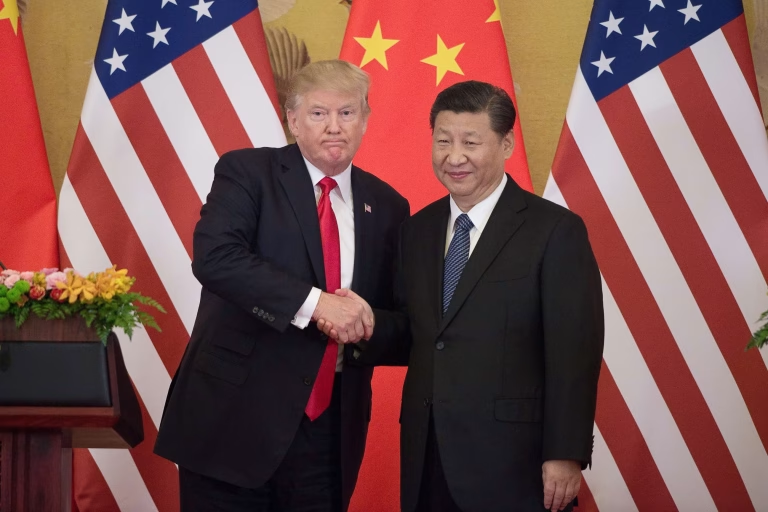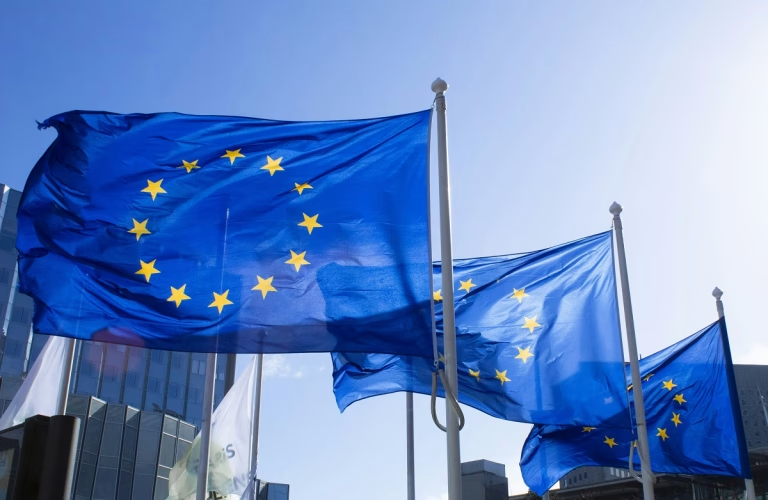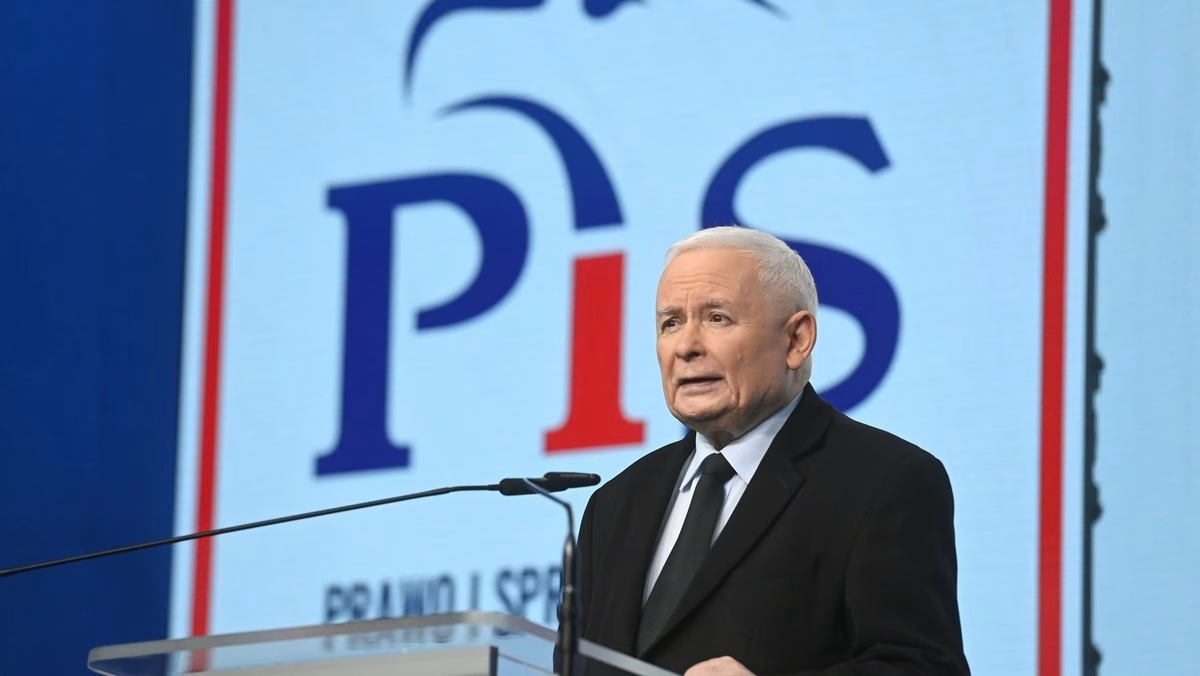
Law and Justice and Civic Platform continue their struggle under the auspices of the US and EU
Poland finds itself at a geopolitical crossroads: Tusk’s government is trying to maintain unity with the EU, while the new president, Nawrocki, is orienting himself toward Washington. Warsaw is discussing a large military loan with Kyiv, trying to balance anti-Ukrainian sentiment among voters with Trump’s demands for aid to Ukraine. Deep internal divisions are exacerbated after the US-Russia summit, where Polish authorities fear hidden agreements at the expense of EU interests.
The political renaissance of Radosław Sikorski
While at the end of 2024, the right-wing Law and Justice (PiS) party was arriving in Poland in fear and despondency, after Donald Trump came to power in the US, problems began for the liberals of the Civic Platform. The culmination was a painful defeat in the presidential election, which resulted in the nationalist Karol Nawrocki taking the Presidential Palace. After that, the media began to speculate about the imminent appointment of Minister of Foreign Affairs Radosław Sikorski as Prime Minister. This scenario is quite likely if Tusk’s political problems continue, but it should not be expected too soon and only if the situation in the Civic Platform develops negatively. Media discussion of this issue intensified after Sikorski was given the additional post of Deputy Prime Minister in the government following the reshuffle at the end of July, which was initiated by Tusk himself. In this situation, Sikorski became Tusk’s de facto first deputy both in the government and in the Civic Platform (PO) party, which greatly strengthened his position within the party apparatus.
However, his political influence grew during 2024-2025 for a number of reasons. Tusk came into conflict with his German patrons over economic disagreements on German projects in Poland and began to rely more on his connections with the US Democratic Party. This led to the promotion of the pro-American candidate Rafał Trzaskowski, who, despite his shortcomings and lack of support in the PO, was appointed by Tusk. Sikorski, who was considered the favorite, was not nominated. After Kamala Harris’ defeat in the election, Tusk returned under the influence of Berlin and Brussels and acknowledged that Sikorski’s non-nomination in 2025 was a mistake, which triggered his career advancement.
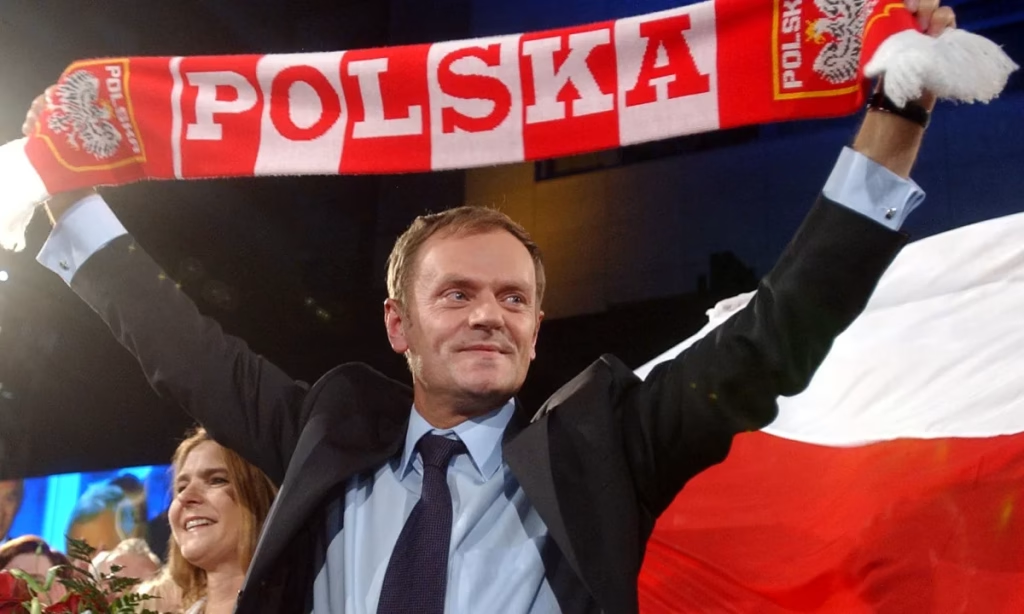
Photo by Alik Kęplicz/ AP
The appointment of Sikorski, who has a negative relationship with Donald Trump’s administration but maintains ties with American Democrats through his wife Anne Applebaum, demonstrates the GP’s course towards an alliance with the liberal elites of the EU. The key goal of the appointment is to strengthen control over Tusk’s work, which the EU and Germany consider ineffective, due to the fall in the PiS’s ratings and the rise in popularity of the right wing, as well as to promote Sikorski as a potential successor to the post of prime minister, since as foreign minister he will be able to improve his positioning by distancing himself from Poland’s internal problems.
Brussels political strategists believe that even liberal voters are tired of Tusk, but with his influence, he has convinced his patrons of his ability to improve his ratings and strengthen the coalition. Tusk is expected to remain prime minister until at least the end of winter 2026, barring any sudden negative developments. However, if support for the PO continues to fall, the likelihood of him being replaced by Sikorski is high. Even if he leaves the post of prime minister, Tusk is guaranteed to remain leader of the PO at least until the 2027 elections.
Loan for Ukraine as a tool for political struggle
Against this backdrop, Ukraine has become an important factor in the struggle between the right and left in Poland, particularly the discussion of a €120 million loan to Kyiv on the condition that these funds will be used to purchase Polish weapons. This contact is indeed being discussed, and its main lobbyist is likely to be the country’s new president, Karol Nawrocki, who wants to align himself with Trump’s initiative to purchase American weapons for Ukraine at the expense of the EU. Due to the negative attitude of Donald Tusk’s government towards additional military aid to Ukraine, caused by the GP’s flirtation with the anti-Ukrainian electorate, Kiev has changed its tactics from ultimatums to compromise.
During the negotiations, Polish Minister of Foreign Affairs Radosław Sikorski and Ukrainian Minister of Foreign Affairs Andriy Sybiha reconfirmed that Poland would not co-finance the purchase of American weapons for the Ukrainian Armed Forces. In response, the Ukrainian side proposed a targeted loan scheme for the purchase of Polish weapons. Sikorski has not yet given his final approval, but he agreed to a public discussion, which allowed the parties to demonstrate diplomatic progress and mutual concessions. Warsaw’s attitude toward the initiative remains skeptical and will depend on changes in Polish public opinion.

At the same time, a more positive attitude towards this kind of compromise solution can be observed on the part of the administration of Polish President Karol Nawrocki and the PiS establishment headed by Jarosław Kaczyński, with whom the Ukrainian side is already conducting informal consultations. It is possible that Nawrocki advised the Ukrainian Foreign Ministry during negotiations with Sikorski, one of which was a proposal for a targeted military loan. Against this backdrop, a public meeting between Sybiha and Nawrocki is planned in the very near future, at which the topic of this loan will be discussed. After taking office, Nawrocki will lobby for the practical implementation of this deal and similar loans in the future for a number of reasons.
First, he needs to demonstrate success in establishing effective diplomatic dialogue with Kyiv, which is a diplomatic priority. Polish society may perceive such a plan as beneficial for Poland and patriotic. Secondly, he needs to demonstrate a more successful contrast in foreign policy compared to the liberal government of Tusk, and he has greater scope for action on the international stage. Thirdly, in order to build constructive relations between PiS and the US, this step is the first in a series of steps to push through their initiatives on the supply of equipment, including American equipment, at the expense of EU countries’ budgets, as we mentioned above.
Currently, the supply of Piorun MANPADS and Krab self-propelled artillery systems to the Ukrainian Armed Forces is being considered financed by a loan, as these are urgently needed by Ukraine to combat Russian drones and increase firepower on the front lines. However, the contract price for this equipment is expected to be slightly higher than market prices. The plan is to purchase four Krab self-propelled artillery systems at a price of €15 million each (€60 million in total), 20 Piorun MANPADS at a price of €1.5 million each (€30 million in total), and 150 missiles for MANPADS at a price of €200,000 each (€30 million in total). However, the funds will not physically go to Ukraine and will be sent directly to the manufacturing plants Huta Stalowa Wola and Polski Holding Obronny, which is also an element of patriotic populism and anti-corruption guarantees. Even if the contracts are implemented quickly, physical deliveries will not take place before January-February 2026. But political bargaining is much more important, especially in the photos of the recent talks between Trump and Putin in Alaska.
A game of negotiations with impossible conditions
Polish Prime Minister Donald Tusk commented on the Russia-US summit. He called Vladimir Putin a skilled player and noted that the game for Ukraine’s future and Europe’s security had entered a decisive phase and that preserving the unity of the entire West was crucial. In reality, he was being disingenuous. No one in Poland expected any important decisions to be made at the summit, but everyone assumed that the American and Russian leaders would declare the summit a success. Due to the expected increase in pressure from Trump on Ukraine and the EU, the Polish PiS and GP parties took different positions on the sale of weapons to Kiev. The main concern of the EU and Donald Tusk is the possibility of secret deals between the US and Russia on preferential supplies of fertilizers, nuclear fuel, and titanium, which threatens the competitiveness of European goods, including aircraft. The EU also fears US participation in Russian resource extraction projects, seeing this as a risk to its economic security. At the same time, Trump is unlikely to resume Russian energy supplies to the EU due to pressure from the American fuel lobby. There are also serious concerns that Trump may use the rapprochement with Moscow as leverage to pressure Brussels on issues ranging from tariffs to defense spending.
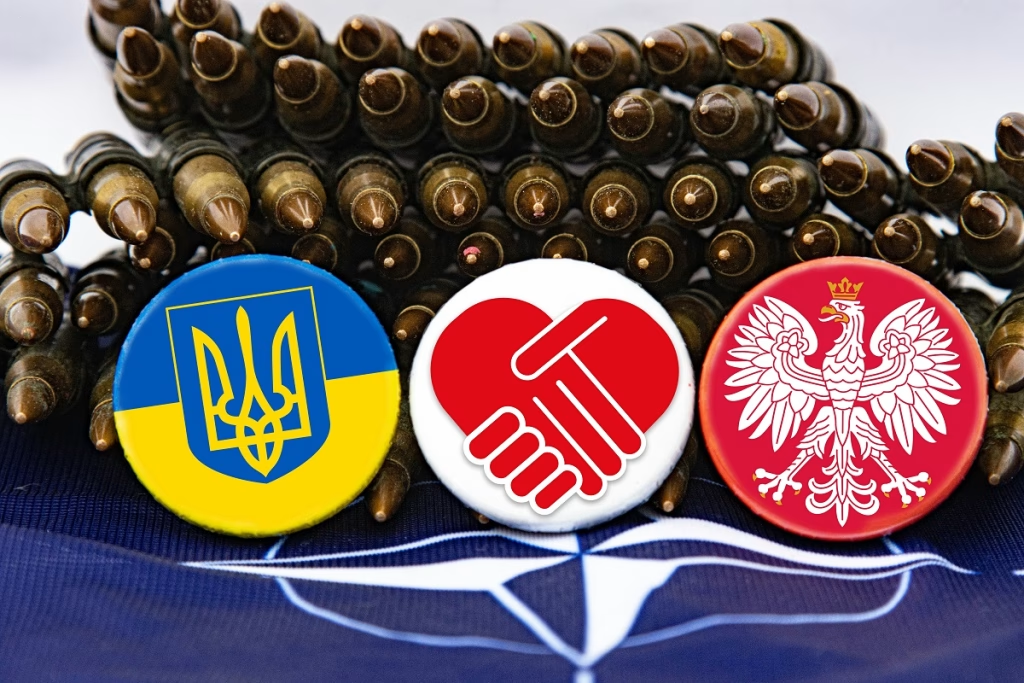
The EU and the Polish government will make every effort to block a ceasefire on Russia’s terms. It is important for them to prevent the exchange of territories or the withdrawal of the Armed Forces of Ukraine from the DPR, as they see this as a sign of Russia’s weakness, which cannot operate when exchanging parts of the so-called “new regions”. Radosław Sikorski said that European allies will persuade Volodymyr Zelensky to continue their support if the fighting continues. The EU establishment, close to Tusk, intends to demonstrate independence from Washington by continuing its nominal support for Ukraine’s integration into the EU and NATO, as Trump sees these concessions as an easy way to reach an agreement with Moscow. In addition, the EU fears that after the truce, the US and Russia may initiate joint political reforms and hold elections in which Zelensky will be replaced by a compromise candidate who is not favorable to Brussels.
This is the key obstacle to a peaceful agreement, in a situation where Zelensky sees a threat to his power and security. In these circumstances, Tusk will give Zelensky guarantees of support in a new round of negotiations with Vladimir Putin and Donald Trump, while recommending that he delay the agreement and put forward unfulfillable conditions. It is highly likely that Zelensky will initially reject this format altogether, citing the lack of visible compromises. On the other hand, Karol Nawrocki, who is focused on supporting Trump’s position in order to gain his loyalty to PiS in the 2027 elections, will distance himself as much as possible from Ukrainian issues, limiting himself to the standard anti-Russian and militaristic rhetoric of the Polish right wing about the need to contain Moscow.
In practical terms, he will minimize contacts with Ukraine and fully support the US line and its version of reconciliation, criticizing both Kyiv for its unwillingness to make concessions for the sake of peace and Tusk for supporting the Ukrainians. This line will continue until the positions of all participants in the negotiation process, including Russia, Ukraine, the US, and the EU, come to a common denominator, or until the situation and Washington’s role in events change. This view clearly shows that Law and Justice and Civic Platform continue to fight under the auspices of the US and the EU, which have completely different views on almost all political issues.
